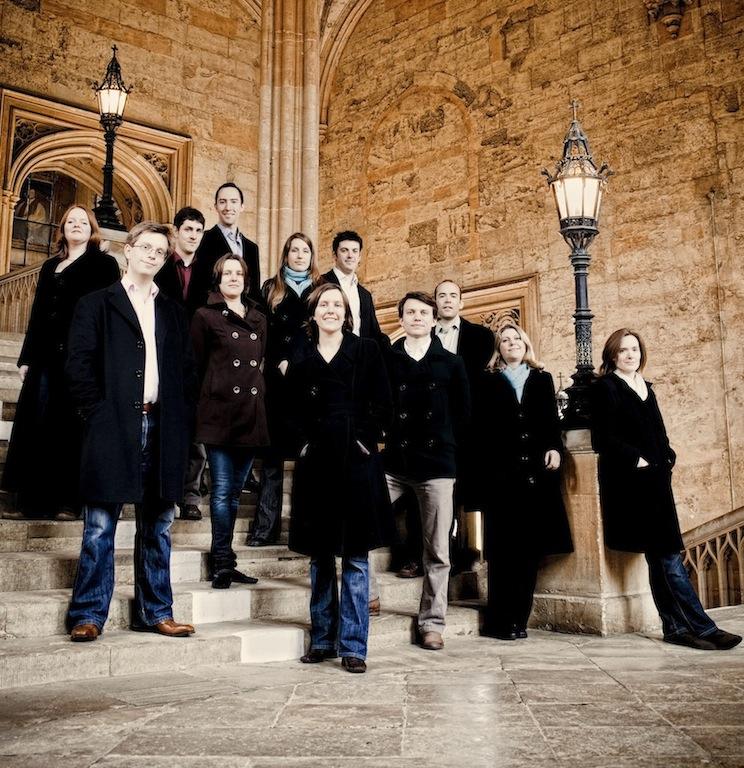There are 12 of them, standing in a semi-circle. No conductor in sight. Instead they start singing by striking some invisible match. Immediately the hall is blazing with heat, light, and the ecstatic sounds of Tudor polyphony. Now celebrating its tenth concert season, the British unaccompanied choral group Stile Antico have been singing this repertoire since they first came together; and this Wigmore Hall shindig, exuberantly received by a packed house, marked the anniversary by revisiting the music sung on their very first CD, Music for Compline, in 2007.
Have they got bored with this contemplative English repertoire composed for evening worship at monasteries, abbeys, and – after Henry VIII’s men bashed the country about – Protestant churches? Not at all. Very much on their toes, they sallied forth into the thickets of Tallis, Byrd and friends, always pitch-perfect, firmly delineating each piece’s structure, text and texture no matter how complex the music’s lines. Nothing thrilled me more than their account of Tallis’s seven-part Miserere nostri – a contrapuntal show-off exercise shaped and polished with such clarity and tonal radiance that I felt myself bodily lifted up into the skies.
Tudor polyphony is music with enough strength, passion, beauty and drama to soar and inspire across the world
Other transports of delight? Almost too many to list. There was the Byrd Nunc dimittis from his Gradualia, a setting that in its richly embroidered closing pages becomes music’s equivalent of a succulent plum pudding. There were the exquisite plainchant games of John Sheppard, a composer now deservedly clambering up to his rightful place alongside Byrd and Tallis. John Taverner’s antiphon of worship for the Virgin Mary, Ave Dei Patris filia, also took some beating, particularly when Stile Antico’s sopranos spun out from the ensemble with scorchingly beautiful, high-flying decorations. I won’t forget Christopher Tye’s Nunc dimittis either, partly because of the source text’s idiosyncratic English translation. Instead of “Amen” we had the phrase “Always so be it”: much more restrictive for a composer to set. You could see why it never caught on.
Among this Tudor finery lay one world premiere. In advance I had wondered how Gentle Sleep, a Wigmore Hall commission from that rather marshmallow composer Nico Muhly, could stand up alongside Stile Antico’s treasures from the past. I needn’t have worried, for Muhly’s 12-minute setting of lines from Shakespeare’s Henry IV Part Two immediately created its own contemplative evening world, with separate text fragments rising fragrantly from a fuzzy background of cradle-rocking patterns until the lines eventually thinned and the meditation reached its terse, quiet end. I have no idea whether choral groups will be singing Gentle Sleep in 400 years time, but it fitted the bill on Friday, and its short compass allowed Muhly to show fibre and focus. No marshallow at all.
Stepping out with a smile after Stile Antico’s encore, a setting by Robert Johnson of Ariel’s Tempest song Full Fathom Five, crowned with some of the most dulcet “ding dongs” imaginable, I pondered briefly on the evening’s experience. Had this been mere esoteric titivation for the cognoscenti, a polished line-up of scholarly jewels? No and no. Tudor polyphony is music with enough strength, passion, beauty and drama to soar and inspire across the world. And on Friday night, with Stile Antico so cleanly expressive, so lithe, so well integrated and balanced, this wonderful repertoire had the world’s best possible ambassadors.













Add comment